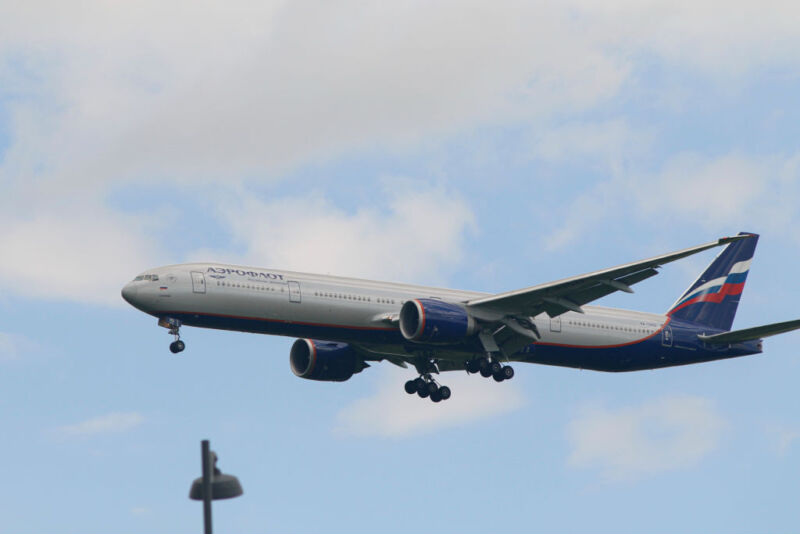
An Airbus A320-232 with the tail number YU-APH made its first flight on December 13, 2005. Since then, the aircraft has clocked millions of miles, flying routes for Air Deccan, Kingfisher Airlines, Bingo Airways, and Syphax Airlines before being taken over by Air Serbia, the Eastern European country’s national flag carrier, in 2014.
For eight years, YU-APH flew without any issues—until it landed at 10:37 pm on May 25, 2022, at Moscow’s Sheremetyevo International Airport. It had flown in from Belgrade and was due to take off again on a late-night return within the hour. But there was a problem: The pilot had reported an issue with the plane’s engine casing that needed to be fixed. The supplier of the broken part, Charlotte, North Carolina-based Collins Aerospace, reportedly refused to fix the problem, citing sanctions against Russia resulting from its February 2022 invasion of Ukraine. The plane was stuck. (Collins Aerospace did not respond to a request for comment.)

It took six days for the problem to be fixed and the A320 to depart Moscow for Belgrade. Air Serbia also did not respond to a request for comment about how the engine casing was replaced or fixed and who manufactured the part. YU-APH managed to remedy its fault, but there are increasing international concerns that planes flying into, from, and around Russia could become a safety risk as sanctions prevent them from being maintained properly. Patrick Ky, executive director of the European Union’s Aviation Safety Agency, said at a recent conference that he felt the situation was “very unsafe.” “In six months—who knows? In one year—who knows?” he said.
As of the end of May, there were 876 aircraft in the Russian commercial jet fleet, according to data provided by Ascend by Cirium, an air industry consultancy—down from 968 aircraft in late February. Most of these were made by Airbus or Boeing planes, both of which stopped supplying spare parts to Russian airlines in order to adhere to sanction rules. “They’re not allowed to get any type of part from Boeing or Airbus,” says Bijan Vasigh, an economics professor at Embry-Riddle Aeronautical University. “The transfer of any part or technical expertise to Russia is prohibited.” The problem is that aircraft need constant maintenance, repairs, and replacements.
Planes aren’t simple things, with a cornucopia of parts coming together to keep passengers in the air. And because of the high-stakes nature of flight, some parts need to be changed very regularly. Anyone who’s ever watched a plane land from the ground or a viewing observation deck will know that bringing a heavy metal tube to a halt is a challenge. Tires are among the hardest-hit parts of a plane, burning rubber as the brakes are applied, with puffs of smoke often coming from wheels—and plenty of slick, black trails left on the tarmac. Tires are changed every 120 to 400 landings a plane makes. Internal flights running short domestic routes could make four journeys a day, meaning the wheels need to be swapped out every one to three months. Boeing stopped supplying the Russian market on March 1. Airbus followed a day later. “They’re going to wear down,” says Max Kingsley Jones, senior consultant at Ascend by Cirium, of the wheels. “They can’t source replacement tires: That’s a potential risk.”
https://arstechnica.com/?p=1862587

